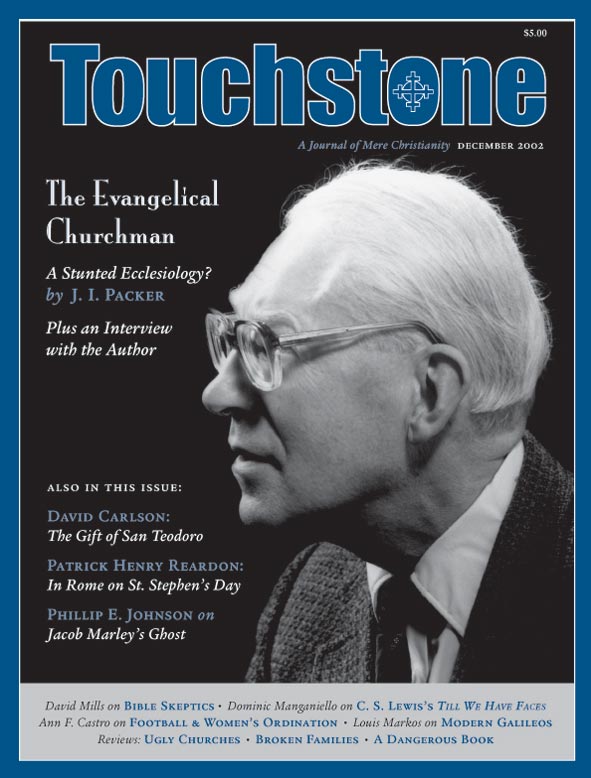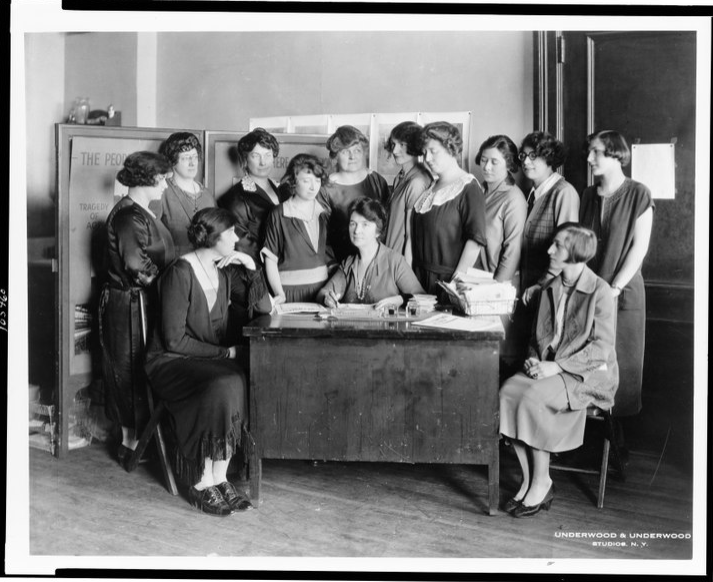A Stunted Ecclesiology?
The Theory & Practice of Evangelical Churchliness
by J. I. Packer
About a half-century ago North American evangelicals began to speak of the evangelical church. They still do. The phrase denoted, and denotes, the worldwide fellowship of congregations and Christians who profess evangelical beliefs and maintain an evangelical style of piety and pastoral care, centering upon conversion, Bible-reading, evangelism, fellowship with God in assurance and trust, and fellowship with other believers in the shared joy of born-again life. The currency of the phrase marks the mutation of the former self-image of evangelicals as the marginalized faithful remnant within liberal-led Protestantism into a sense of being truly the core of God’s church on earth.
Evangelicalism is more and more viewing itself as the main stream, in relation to which non-evangelicals, whether so by adding to the biblical faith or subtracting from it, are deviating eddies, and evangelical vocation is more and more seen as involving prayer and labor for the leavening and reinvigorating of non-evangelical communities by evangelical truth. This mutation continues to broaden and deepen. It shows a remarkable recovery of confidence and, so I think, of churchliness too.
What is in the mind of evangelicals when they speak of the evangelical church? They are not using the singular noun in what would be a secular way, that is, to signify a statistical and organizational collective, though of course the global evangelical fellowship is that, and may be so viewed if sociology is one’s concern. But in fact their use of this phrase is voicing the same sort of claim to authenticity as Roman Catholic and Orthodox Christians express when they identify themselves as belonging to the church. This small c use of the word church (large c reduces it to a group label) carries the thought of the one body of Christ on earth, of which all believers are in some sense members, but which takes its most proper form in the circle of communion to which each of the adjectival qualifiers (Roman Catholic, Orthodox, and now evangelical) is pointing.
Believers using any one of these three distinguishing labels for self-identification express thereby, in an informal and subtextual way, their belief, not that God is content to have three communities of saints side by side, but that here is the particular road that ideally all God’s people would be taking together. The ecumenical exchanges of the past century have brought an awareness of this churchly inkling (often not more, but never less) as undergirding the sometimes perplexing phenomenon of separation justifying itself; and when evangelicals speak of the evangelical church, the same inkling is involved. There is here, in fact, a recognizable renewal of the sense of churchly reality that lay at the heart of the sixteenth-century reformation.
A comparable renewal has taken place among evangelicals in Britain, and I see myself as a product of it. English by birth, Canadian by choice, Christian by conversion and Calvinist by conviction, I speak as an evangelical who finds his home in the worldwide Anglican church family precisely because historic Anglicanism in its essence represents evangelical churchliness so well. (Present-day Anglicanism in the West is dreadfully out of shape and out of sorts, but that is another story.) In what follows, however, I attempt to generalize about all global evangelicalism as it is today.
This, be it said, is a tall order, for since the Second World War evangelicalism has become a massive network of pulsating energies, largely charismatic in style and constantly adjusting its cultural forms. Statisticians say there are something like half a billion evangelicals in the world, twice as many as there are Orthodox and almost half as many as there are Roman Catholics, and to speak representatively for this multinational pluriform constituency is not an easy task. But I shall try my best, and I apologize in advance to any evangelicals who may feel I am off-key as far as they are concerned.
The Principles of Evangelicalism
What does evangelical mean on evangelical lips? It is an umbrella word, covering and connecting belief, spirituality, purpose, and action, both personal and corporate. The quadrilateral account of evangelicalism as biblicist, cross-centered, conversionist, and evangelistic has gained wide acceptance in recent years. I myself profile evangelicalism in terms of six belief-and-behavior principles, thus:
1. Enthroning Holy Scripture, the written word of God, as the supreme authority and decisive guide on all matters of faith and practice;
subscription options
Order
Print/Online Subscription

Get six issues (one year) of Touchstone PLUS full online access including pdf downloads for only $39.95. That's only $3.34 per month!
Order
Online Only
Subscription

Get a one-year full-access subscription to the Touchstone online archives for only $19.95. That's only $1.66 per month!
bulk subscriptions
Order Touchstone subscriptions in bulk and save $10 per sub! Each subscription includes 6 issues of Touchstone plus full online access to touchstonemag.com—including archives, videos, and pdf downloads of recent issues for only $29.95 each! Great for churches or study groups.
Transactions will be processed on a secure server.
more from the online archives

28.3—May/June 2015
Of Bicycles, Sex, & Natural Law
Describing Human Ends & Our Limitations Is Neither Futile Nor Unloving by R. V. Young

8.4—Fall 1995
The Demise of Biblical Preaching
Distortions of the Gospel and its Recovery by Donald G. Bloesch
calling all readers
Please Donate
"There are magazines worth reading but few worth saving . . . Touchstone is just such a magazine."
—Alice von Hildebrand
"Here we do not concede one square millimeter of territory to falsehood, folly, contemporary sentimentality, or fashion. We speak the truth, and let God be our judge. . . . Touchstone is the one committedly Christian conservative journal."
—Anthony Esolen, Touchstone senior editor







